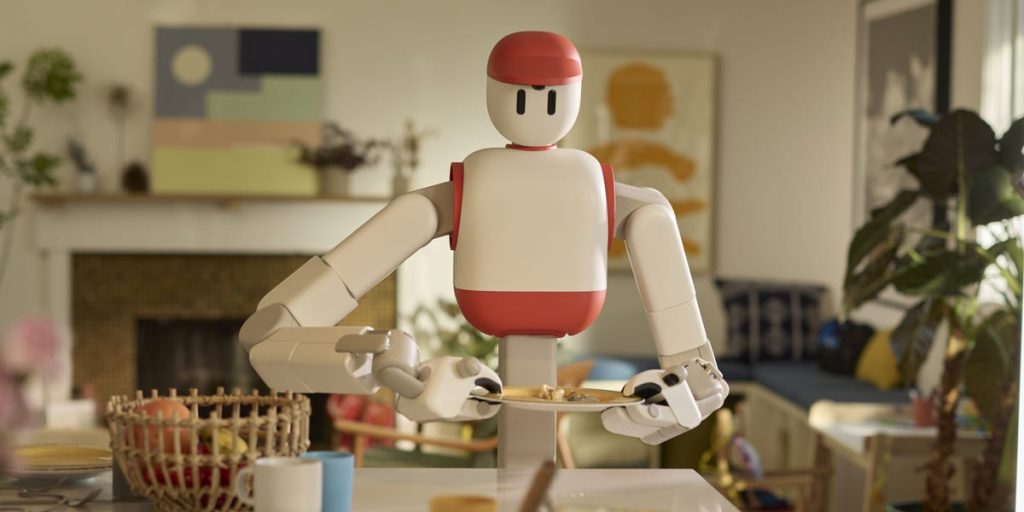Everyday tasks like clearing the dinner table and loading the dishwasher are a major dexterity challenge for home robots that can require a lot of training data and capital.
A new startup says it spent less than two years and a fraction of the costs to figure it out.
On Thursday, Sunday Robotics emerged from stealth to demonstrate Memo, a fully autonomous home robot on wheels that can complete household tasks.
A video posted on X by the company’s cofounder, Tony Zhao, showed Memo move from the dining room to the kitchen to clear the table of dishes and load them in the dishwasher. The company said Memo was conducting the task autonomously.
One other feat included Memo picking up two wine glasses, which can be notoriously fragile, with one hand. The robot also folded socks and loaded up an espresso machine.
Sunday Robotics, also known as Sunday, was founded in April 2024 by Zhao and Cheng Chi, both of whom have a background in robotics.
Courtesy Sunday
“Today, we present a step-change in robotic AI,” Zhao said in an X post. The cofounder added that Memo broke zero wine glasses over more than 20 live demo sessions.
To get a robot to interact with common household items — some of which can be delicate — is a crucial benchmark for dexterity in the world of robotics.
For one, replicating the human hand, which has thousands of touch receptors, is a challenging engineering feat in itself. Tesla CEO Elon Musk said as much in the company’s latest earnings call in October.
The information used to train robots is also a major bottleneck.
Many companies have turned to teleoperations, in which a human controls a robot via joysticks or various controllers, to teach robots. Other companies are experimenting with synthetic data and simulations.
Sunday doesn’t use any of those widely accepted methods. Instead, the startup’s cofounder said the company built a proprietary glove that mimics the shape of the Memo’s Lego-like hands.
A human wears the gloves and completes specific tasks, which will provide data to Memo such as the amount of force used to pick up an object.
Zhao said that this method presents a more efficient and cost-effective means of training robots. In an X post, he said the glove gives “two orders of magnitude higher capital efficiency compared to teleoperation ($200 vs $20,000).”
Zhao added that this is also scalable since data can be collected anywhere without having to lug Memo around. The startup has more than 500 human data collectors across the US, providing training data for Memo.
“In robotics, if the only thing we can rely on is teleoperation, to gather the amount of training data it would take like decades for sure,” Zhao said in an interview with “TBPN.”

